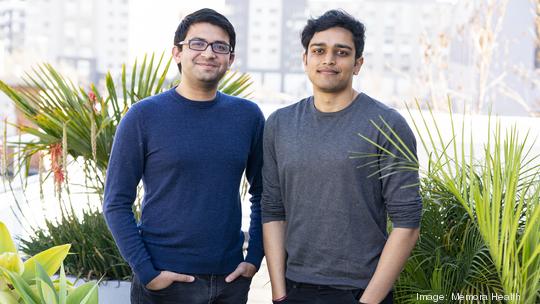
Even the best medical clinics can have clunky communication when it comes to managing care for patients, and Memora Health is trying to make the process smoother, particularly for people dealing with complex conditions.
The San Francisco startup announced $40 million in new financing on Tuesday, bringing its total funding to $50.5 million. The company didn't disclose a round but the financing was led by Transformation Capital and also included Andreessen Horowitz, Frist Cressey Ventures, Edward Elmhurst Health and AlleyCorp.
Manav Sevak co-founded the company in 2017 with CTO Kunaal Naik, a trained computer scientist, and Nisarg Patel, who is currently attending a medical residency program and acting as an adviser to Memora.
Sevak almost went into health care himself. He studied computer science and biochemistry at Georgia Tech, then worked at the Broad Institute as a computational biologist.
But after spending time in clinical settings, he and his co-founders realized there were so many pain points for managing patient care. So they decided to work toward making the experience better for all stakeholders.
“Health systems just did not have good infrastructure to manage and support their patients after they left the walls of the hospital,” Sevak told me. “The technology stack is very much designed around managing a patient when they’re in front of you and helping you bill for the work that you’re doing. It’s not necessarily designed to deliver care and to support those patients.”
The company uses artificial intelligence to continuously analyze patient needs and outcomes, and adapts to their needs depending on the condition being managed. That can include reminders, educational material, instructions and scheduling appointments. Eventually the company could integrate insurance information, too.
Patients are given the choice to opt-in to Memora’s platform and can also request that their data be deleted.
For health organizations, the platform streamlines communication and makes it more efficient. The goal is to reduce the amount of manual work that has to be done in order to speed up communication.
Memora currently has more than 50 health care organizations using its platform, including Stanford Health and Mayo Clinic. It charges clients subscription fees based on the complexity of their needs.
It has about four dozen employees, and Sevak expects to triple both headcount and revenue this year. The company is also already garnering interest outside of medical institutions, such as from life sciences organizations and health insurance companies, Sevak told me.
The U.S. spends more on health care as a percentage of GDP than any other OECD nation. In 2019, the U.S. spent nearly 17% of its GDP on health care, ahead of only Germany which came in at 12%, according to Statista.
In 2020, U.S. health care spending jumped almost 10% to more than $4.1 billion, according to the Centers for Medicare and Medicaid Services.
There are more than 5,000 heath care companies based in the Bay Area, according to Crunchbase. Among them are Apella, which collects operating room data for surgeons, and Robin, which operates as a smart, virtual assistant for clinicians.







